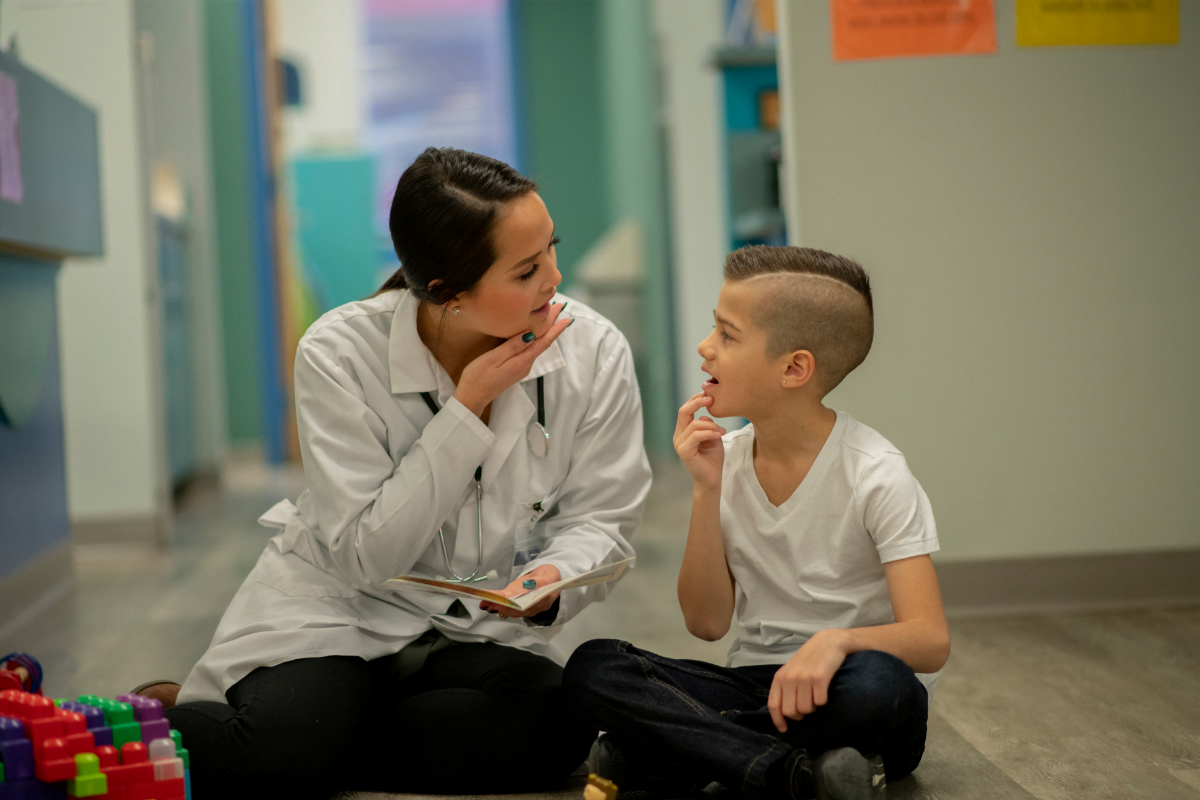Engaging in physical activity is important for children with special needs as it helps to improve their overall health and well-being. Outdoor activities are a great way to strengthen muscles and improve coordination while also providing an opportunity for children to enjoy the fresh air and sunshine. In this article, we will discuss five outdoor activities that are specifically designed to help special children build strength and coordination.
The first activity is cycling, which is a low-impact exercise that can be enjoyed by children of all ages and abilities. Cycling helps to strengthen leg muscles and improve balance and coordination. It also provides a sense of independence and freedom as children can explore their surroundings on their own.
The second activity is swimming, which is a great way to improve overall fitness and coordination. Swimming works all major muscle groups and is a low-impact exercise that is easy on the joints. It also provides a sense of weightlessness, which can be particularly beneficial for children with mobility issues. Swimming can be enjoyed in a pool or in natural bodies of water such as lakes or oceans.
Fundamentals of Outdoor Activities for Special Children
Outdoor activities offer a range of benefits for special children, including improved muscle strength, coordination, and social skills. However, it is important to consider the unique needs of each child to ensure their safety and enjoyment. Here are some fundamentals to keep in mind when planning outdoor activities for special children:
1. Safety First
Before engaging in any outdoor activity, it is important to assess the safety risks and take necessary precautions. This may include wearing protective gear, ensuring proper supervision, and selecting appropriate activities based on the child’s abilities.
2. Tailor Activities to the Child’s Abilities
Each child is unique and may require different levels of support and accommodation. When planning outdoor activities, it is important to consider the child’s physical, cognitive, and emotional abilities to ensure they are able to participate and enjoy the experience.
3. Focus on Fun and Engagement
Outdoor activities should be designed to be fun and engaging for special children. This may involve incorporating games, challenges, and interactive elements to keep the child motivated and interested.
4. Encourage Socialization
Outdoor activities provide an opportunity for special children to interact with peers and develop social skills. It is important to encourage socialization and create a supportive, inclusive environment where all children can feel comfortable and accepted.
5. Emphasize Progress Over Perfection
When engaging in outdoor activities, it is important to emphasize progress over perfection. Celebrating small achievements and milestones can help boost the child’s confidence and motivation, leading to greater success in the long run.
Adaptive Aquatics for Enhanced Coordination
Pool Games for Muscle Development
Adaptive aquatics is a great way to improve muscle strength and coordination in special children. Playing pool games is a fun and engaging way to develop muscle strength. Games like water volleyball, basketball, and noodle races can help children improve their arm and leg strength. These games are designed to be played in shallow water, which makes them perfect for children who are not yet comfortable in deep water.
Swimming Techniques for Balance Control
Swimming is a great way to improve balance control and coordination in special children. Adaptive aquatics instructors can teach children different swimming techniques, such as the backstroke, breaststroke, and freestyle, to help them improve their balance control. Swimming also helps improve cardiovascular health and endurance.
Adaptive aquatics instructors can use different equipment, such as kickboards, pool noodles, and flotation devices, to help children improve their balance control and coordination. These equipment can be used to help children float and move through the water, which helps them develop their coordination skills.
Overall, adaptive aquatics is a great way to improve muscle strength and coordination in special children. Pool games and swimming techniques can be used to help children improve their balance control and coordination, while also having fun in the water.
Therapeutic Horseback Riding
Therapeutic horseback riding is an effective outdoor activity that helps special children improve their muscle strength and coordination. This activity involves riding and interacting with horses under the supervision of a trained professional.
Grooming and Tacking for Fine Motor Skills
Before riding, children are taught to groom and tack their horses. Grooming involves brushing, combing, and cleaning the horse’s coat, mane, and tail. Tacking involves putting on the saddle, bridle, and other equipment necessary for riding. These activities help improve fine motor skills, hand-eye coordination, and spatial awareness.
Riding Exercises for Core Strengthening
Once the horse is tacked, the child can begin riding. The movement of the horse helps stimulate the child’s muscles and improve core strength. Riding exercises such as posting, trotting, and cantering help improve balance, coordination, and overall physical fitness.
Therapeutic horseback riding is a fun and engaging outdoor activity that provides numerous physical and mental benefits for special children. With the help of a trained professional, children can improve their muscle strength, coordination, and overall physical fitness.
Inclusive Playground Adventures
Inclusive playgrounds are designed to allow children with disabilities to play alongside their peers. These playgrounds are equipped with equipment that caters to the needs of all children, regardless of their abilities. Here are some of the inclusive playground adventures that can help special children strengthen their muscles and coordination.
Climbing Structures for Gross Motor Skills
Climbing structures are a great way to help children with special needs develop their gross motor skills. These structures come in different shapes and sizes and can range from simple to complex. Some climbing structures are designed to be low to the ground, making them safe for children who have difficulty with balance. Other climbing structures are more challenging, allowing children to develop their strength and coordination.
Sensory Gardens for Tactile Stimulation
Sensory gardens are designed to provide children with a variety of tactile experiences. These gardens are filled with different textures, such as sand, rocks, and plants. They also include interactive features, such as water fountains and wind chimes. Sensory gardens are a great way to help children with special needs develop their sensory processing skills. They can also help children with anxiety and other sensory-related issues feel more comfortable in outdoor environments.
Inclusive playground adventures offer a wide range of opportunities for special children to develop their muscles and coordination. By providing children with a safe and inclusive environment, they can play freely and develop their skills alongside their peers.
Nature Hikes and Trail Walks
Nature hikes and trail walks are a great way to get children with special needs outside and engaged with their surroundings. These activities can be tailored to the needs of each child, making them an excellent choice for children with varying abilities.
Navigating Uneven Terrain for Ankle Stability
Walking on uneven terrain can help children develop ankle stability and improve their balance. This is particularly important for children with special needs who may struggle with coordination and balance. Nature hikes and trail walks provide an excellent opportunity for children to practice walking on uneven terrain, such as rocks, tree roots, and hills.
To make the most of this activity, parents and caregivers can encourage children to take small steps and pay attention to their footing. They can also point out interesting features along the trail to keep children engaged and motivated.
Scavenger Hunts for Cognitive Engagement
Scavenger hunts are a fun way to engage children with their surroundings and provide opportunities for cognitive development. Parents and caregivers can create scavenger hunt lists that include items found in nature, such as leaves, rocks, and flowers.
To make the most of this activity, parents and caregivers can encourage children to use their senses to find the items on the list. They can also ask questions about the items to encourage critical thinking and problem-solving skills.
Overall, nature hikes and trail walks are a great way to strengthen muscles and coordination in special children. By incorporating activities such as navigating uneven terrain and scavenger hunts, parents and caregivers can help children develop important skills while enjoying the outdoors.
Organized Sports Adaptations
Organized sports can be a great way for special children to build their muscles and coordination while also improving their social skills. However, traditional team sports may not be suitable for all children with special needs. That’s where modified team sports and individual sports come in.
Modified Team Sports for Social Interaction
Modified team sports are adaptations of traditional team sports that are designed to make them more accessible for children with special needs. These sports can be played with smaller teams, modified rules, and specialized equipment. Some examples of modified team sports include:
- Basketball: Modified basketball can be played with smaller teams, lower hoops, and a softer ball. This allows children with limited mobility or coordination to participate.
- Soccer: Modified soccer can be played with smaller teams, smaller goals, and a softer ball. This can make the game less overwhelming for children who are easily overstimulated.
- Baseball: Modified baseball can be played with a larger ball, a tee, and simplified rules. This can help children who struggle with hand-eye coordination to participate.
Individual Sports for Personal Achievement
Individual sports can be a great option for children who prefer to work on their own or who have difficulty with social interaction. These sports allow children to focus on their personal achievements and build their confidence. Some examples of individual sports include:
- Swimming: Swimming is a low-impact sport that can help children build their muscles and coordination. It can also be a calming activity for children who are easily overstimulated.
- Gymnastics: Gymnastics can help children build their strength, flexibility, and coordination. It can also be a fun way for children to express themselves creatively.
- Martial Arts: Martial arts can help children build their discipline, focus, and coordination. It can also be a great way for children to learn self-defense and build their confidence.
By adapting traditional team sports and exploring individual sports, special children can find the right activity to help them build their muscles, coordination, and social skills.


